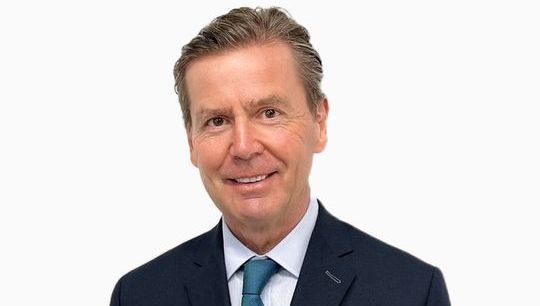Operational Due Diligence: Are you prepared?
By Rob Showers and John Little, BNP Paribas
Published: 12 October 2018
Even as the global markets continue to show signs of resilience, investors remain steadfast in their quest for granular data, on demand and easily accessible. This has been particularly evident within the alternatives space, where flagship pension funds and other large institutional investors have made increased portfolio clarity and streamlined communications a condition of their ongoing involvement in hedge funds, private credit and related strategies.
Such was the backdrop for the BNP Paribas-sponsored event 'Operational Due Diligence: Are You Prepared?', held in conjunction with the Alternative Investment Management Association (AIMA) this past June and featuring a panel of senior operational due diligence professionals at investment managers, consultants and wealth advisors.
In her opening remarks, Cathy Beckett, Chief Financial Officer, Hedge Fund Administration, BNP Paribas Financial Services, described how the bank’s own asset-management clients are fielding a greater number of requests from investors for more—and increasingly complex—operational due-diligence (ODD) information, including ODD questionnaires and related information. At the same time, increased outsourcing, new modes of communication, as well as the need to fine-tune valuation practices make this a particularly good time to hear how leading due-diligence experts are working with fund clients to stay above the fray.
Information evolution
During the first segment which focused on ODD for hedge funds, participants noted changes in the way ODD teams communicate with fund managers post-crisis. Transparency has continued to rise, with many firms now sending regular updates around their operability status, or including more comprehensive detail if reporting annually. A number of panellists discussed the value of having straightforward yes/no type questionnaires, which they suggested may be more useful for applying information across the entirety of funds under their purview.
In addition to keeping the trust of their investor clients, firms that are communicative are more likely to gain favour with their ODD partners as well. While some funds may be more forthcoming than others, panellists agreed that it is easier for ODD practitioners to work with managers who respond in a timely manner, or proactively get in touch if there are any changes they should know about.
Outsourcing insights
The move towards outsourcing as a cost-saving measure continues to re-define the industry, say experts, mainly for the better. For start-up managers in particular, the ability to outsource nearly any kind of service, from IT to HR or accounting, is a real advantage, one that allows firms to get up and running without a huge footprint or excessive capital requirements. Then again, there are certain functions that are best kept in-house such as CFO or CCO responsibilities—the idea being that if you’re not in the same building or are attempting to monitor via email, oversight may be compromised.
While acknowledging the impact of increased competition and thinning margins, managers should never settle for less when seeking outsourced assistance. Thus, it is crucial that a provider has a proven track record, and that the client has internal controls in place to continually monitor services rendered. A firm might have a single IT professional, but it is workable so long as they are working with a trusted partner and have all the necessary contingency plans in place.
Staying secure
Despite the rise in hacking attacks and other nefarious activity, a number of panellists continue to see a disparity in cybersecurity preparedness, with regulatory scrutiny often the prime motivator. For example, rules established by the state of New York in 2017 now require covered financial services companies to maintain adequate cybersecurity programs and policies based on a risk assessment of the firm. However, there’s a great deal of dispersion of practice by geography and asset classes. In some cases, controls around customers’ personally identifiable information (PII) or other sensitive data often don’t exist or have been given little thought. This has compelled ODD practitioners to highlight the importance of complying with SEC guidelines around encryption, penetration testing, vulnerability testing and the like. Meanwhile, setting controls at the employee-user level can help address potential threats from within by stemming the flow of network information.
Workplace policies to the fore
Of course investors have other concerns besides their annual returns. Questions about conduct, diversity and other cultural components have become a much bigger part of the ODD-client conversation. Accordingly, many in the industry have modified client questionnaires to address a firm’s specific HR policies, including whether a harassment policy is in place, how often training is provided, and so forth. Providers may also want to know about any outstanding discrimination claims, similar to inquiries about pending litigation against the firm. Given that many pension funds and other large institutional players maintain a zero-tolerance policy around discrimination or harassment, participants believe such criteria will become even more relevant over the near term.
ODD and private credit
With the private credit industry in growth mode, AIMA has responded by establishing the Alternative Credit Council, said moderator Michelle Noyes, Head of Americas, AIMA, during her introduction to the event’s second panel focused on ODD for private credit funds. This has included new guidance around due diligence, valuation, loan administration and other topics for private credit funds.
Carrying out the due diligence of private credit funds has unique challenges and areas of focus, particularly when compared to hedge funds. For instance, ODD practitioners must regularly review clients’ positions to ensure valuations reflect the methodologies that have been specified in their documentation. For their part, managers should adopt a risk-ranked framework, including the use of scenarios to determine if loans will likely perform as expected.
Analyzing private-credit legal documentation also poses a unique challenge from a due-diligence standpoint, given the wide variety of documentation from one private credit manager to the next. Additionally, panellists pointed to the need for better investor protections, including the ability to replace a GP if the situation warrants.
Yet another priority for ODD leaders is establishing specific infrastructure guidelines on behalf of new managers. To wit, start-ups should have a strong CFO, knowledgeable operations staff, as well as traders who understand the nuances of private credit, given the inherent complexities of the asset class.
Finally, segregation of fund-accounting duties remains front-and-center for fund clients. Though not nearly as widespread as in years past, any PC firm operating without a fully independent administrator will send up an immediate red flag; similarly, on-site valuation committees must include a separate entity to ensure that calculations remain unconflicted. Unlike other fund types, private credit administrators often receive valuation data directly from the manager, who may rely on waterfall calculations rather than doing AML and having fully independent valuation and verification of assets. As such, ODD partners must ensure managers utilize a streamlined system capable of providing accurate calculations, as opposed to Excel or other manual processes.










